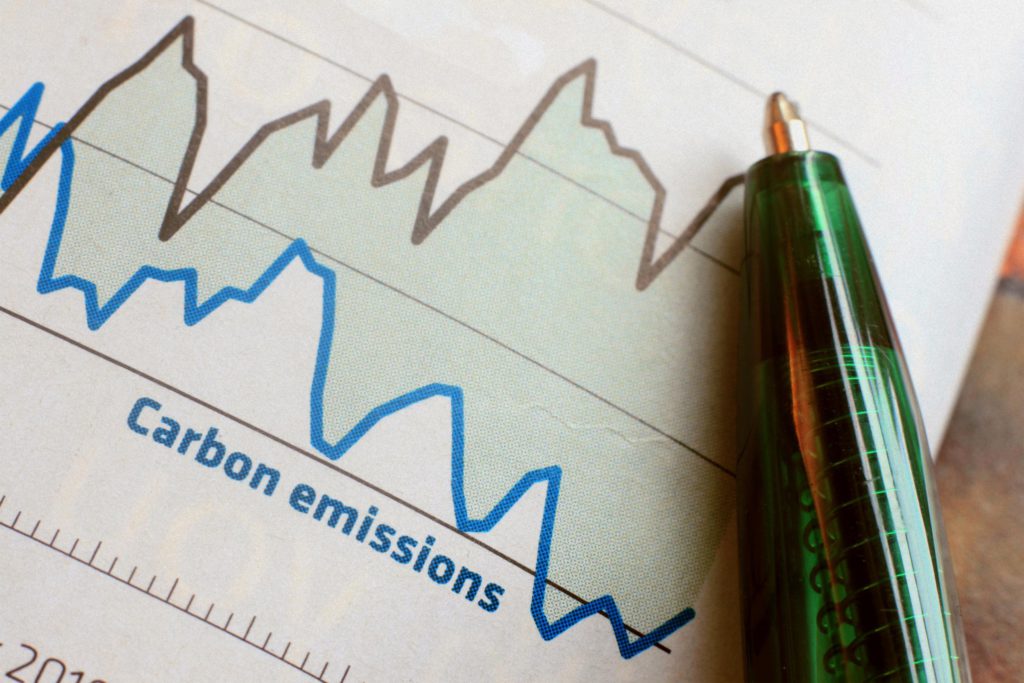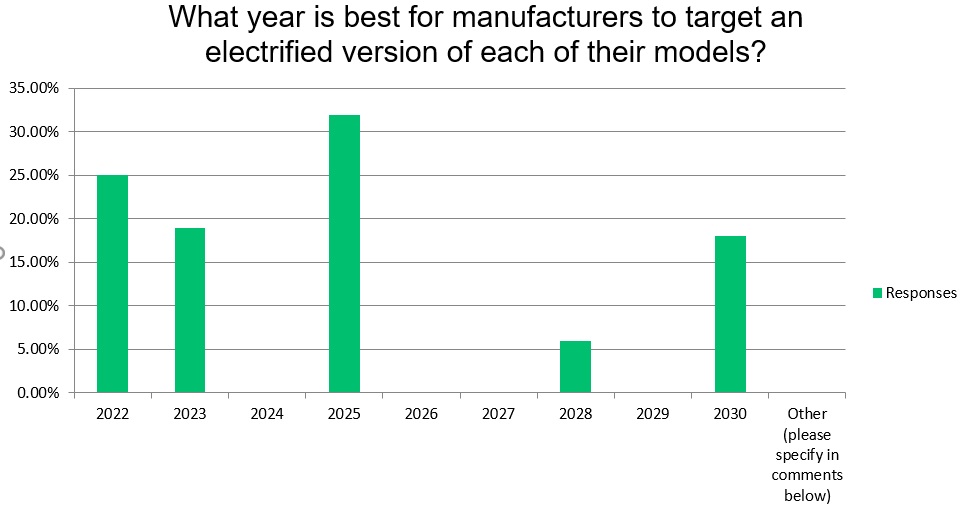Survey results: The best time for full fleet electrification revealed
23 November 2018

23 November 2018
With new European CO2 limits coming into force after existing targets by 2021, carmakers are looking at ways to ensure they do not incur large financial penalties, something they are likely to face in three years.

Some manufacturers have suggested that they will accelerate their electric vehicle (EV) plans because of the new targets, which ask for a 15% decrease on 2021 levels by 2025, and 35% reduction by 2030. Carmakers have generally set a target of 2025 for electrification of fleets, offering at least one hybrid or electric version of each of their models. But bringing these plans forward allows them to take advantage of sales in preparation for the target deadlines.
Autovista Group, therefore, wanted to find out when the best time to launch an electrified version of each model by a manufacturer would be. Earlier years could affect product quality, while later periods would cause problems with CO2 targets.
Coming out on top in the latest survey, with 32%, was the current general target of 2025. This was the initial date mentioned by Volkswagen when it announced its EV investment, although the German car company is now targeting 2023 instead. However, waiting until the middle of the next decade ensures the best of both worlds: longer development time and a chance to meet CO2 guidelines.
The next date in the results was 2022, with 25%. A surprising choice, this earlier date would allow CO2 fleet levels to drop dramatically, with three years’ worth of sales in place by the time of the first reduction. However, a three-year target to develop the technology is tight and could lead to imperfections. This may have been on the mind of the 19% who chose 2023, as this date would still give benefits of sale time while increasing the time for research.
Our furthest away option, 2030, was next on the results sheet with 18% of the vote. The timing would be useless for CO2 target considerations; yet it would give the industry the best chance to improve battery range, charging times, and could help to introduce hydrogen technology – seen by some as the closest clean option to petrol and diesel.
With 6% of the vote was 2028. This would give a longer lead-time and would help with sales prior to the biggest reduction target introduced by the European Parliament. This would also give manufacturers an idea of sales targets to boost reduction, based around CO2 levels from their 2025 sales.
The options of 2024, 2026, 2027 and 2029 did not gather any votes. However, one comment received did suggest that manufacturers should not be looking at introducing electrified vehicles of each model. There is still demand petrol and diesel technology it seems.